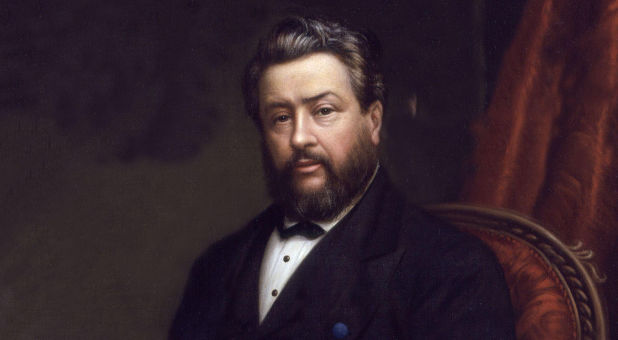
19th Century (8)
for much of Canada, hopes of a great Christian dominion developing across the North through the spread of the gospel were nurtured, as revealed by the founding text of the Canadian Dominion (Psalm 72:8). On Parliament Hill in Ottawa, the Parliament Buildings remain testament to this Christian vision, most notably, the Peace Tower and the Memorial Chamber, where Scripture is engraved everywhere, inside and out.Mission of God, 87
In mid-nineteenth century Protestant Ontario, millenarianism raised its head again in the form of the exported Irvingite movement (named after the English millenial preacher Edward Irving) and in the even more disruptive Millerites -followers of the converted American deist William Miller (by this point a Baptist), whose detailed calculations from biblical prophecy had him predicting the end of the world in the years 1843 or 1844, followed by a literal millennial (that is, thousand-year) reign. This eventually led to the founding of the Seventh Day Adventist church. This was quickly followed in the 1860s by the dispensationalist millennial crusade of J.N. Darby and C.I. Schofield, a movement emerging from the Plymouth Brethren in EnglandMission of God, 85
Which are the cities on earth where the fewest soldiers and police are required to keep order? London, Manchester, Liverpool, New York, Philadelphia, - cities where Bibles abound.- Which are the countries in Europe where there are the fewest murders and illegitimate births? The Protestant countries, where the Bible is freely read.Old Paths, 9
New Quotes
the Christian Sabbath mattered to Spurgeon. He fought to keep the day holy according to his understanding of Scripture. Due to his convictions, he moved his successful three-year ministry at the Surrey Music Hall to an inferior venue, which he knew would constrict his influence. Yet, Spurgeon's theological views regarding the Christian Sabbath outweighed other expedient factors. Spurgeon\'s Forgotten Sabbatarianism: Examining the Role of the 4th Commandment in His Life and Theology (p. 23).
As for the Surrey Music Hall, it died the death of a cursed man, only to see Spurgeon standing triumphantly over its grave. The owners filed for bankruptcy after Spurgeon departed. Since they lost the income from the church and their Sunday evening shows drew small crowds, they could not pay their bills. Then, fire burned down the building, and residential housing replaced it.Spurgeon\'s Forgotten Sabbatarianism: Examining the Role of the 4th Commandment in His Life and Theology (p. 23).
there was a period of religious awakening in Scotland from 1859 to 1863 following the New York prayer meetings started by Jeremiah Lamphier. In these years, revivals were sparked in certain towns by the public prayers of teenagers, countless prayer meetings were started and maintained for children by other children, entire classrooms and Sabbath schools turned to the Lord under forceful conviction, and children led their parents to the Lord. There are accounts of young boys leading family worship where the father was unwilling, and of girls enduring beatings at home in order to attend prayer meetings or revival services.
In 1791 fifteen hundred English Catholics signed a statement denying that papal infallibility was a dogma of the Roman Catholic Church. However, the opposition of the Gallicans was gradually overcome, and in 1870 the Vatican Council declared that 'the Roman Pontiff... enjoys fully that infallibility which the divine Redeemer wished his Church to have in defining doctrine touching faith and morals... consequently such definitions of the Roman Pontiff are of themselves unchangeable and are not to be changed through the approval of the Church.' The History of Christian Doctrines (239-240)
Get notified when new '19th Century' quotes come out?
Top Authors
1. Charles Spurgeon (132)
2. Thomas Watson (125)
3. J.C. Ryle (117)
4. John Calvin (104)
5. J.I. Packer (89)
6. John Piper (86)
7. George Swinnock (75)
8. A.W. Pink (68)
9. Louis Berkhof (63)
10. John Flavel (58)
11. B.B. Warfield (58)
12. C.S. Lewis (55)
13. John Owen (54)
14. Martyn Lloyd-Jones (54)
15. Gerald Bray (50)
16. Francis Schaeffer (49)
17. R.C. Sproul (46)
18. Thomas Brooks (46)
19. Matthew Henry (45)
20. Francis Turretin (43)
2. Thomas Watson (125)
3. J.C. Ryle (117)
4. John Calvin (104)
5. J.I. Packer (89)
6. John Piper (86)
7. George Swinnock (75)
8. A.W. Pink (68)
9. Louis Berkhof (63)
10. John Flavel (58)
11. B.B. Warfield (58)
12. C.S. Lewis (55)
13. John Owen (54)
14. Martyn Lloyd-Jones (54)
15. Gerald Bray (50)
16. Francis Schaeffer (49)
17. R.C. Sproul (46)
18. Thomas Brooks (46)
19. Matthew Henry (45)
20. Francis Turretin (43)
Top Topics
1. Sin (195)2. Scripture (131)
3. Prayer (130)
4. Faith (113)
5. Preaching (112)
6. Gospel (92)
7. Sabbath (82)
8. Suffering (78)
9. Salvation (72)
10. Church (71)
11. Law (61)
12. The Law (58)
13. Truth (52)
14. Christ (50)
15. Justification (50)
16. Love (44)
17. Grace (42)
18. Theology (42)
19. Creation (40)
20. Fear (37)
21. Holiness (37)
22. Children (34)
23. Pride (34)
24. Sanctification (34)
25. Ten Commandments (34)
26. Worship (34)

